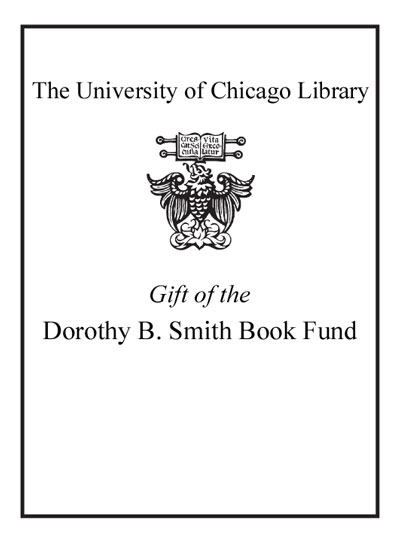Review by Choice Review
This anthology of Anglophone poetry about slavery from the 17th to 19th centuries is monumental in scope, vision, and editorial skill. Basker (Barnard College) has gathered more than 250 poems by 400 writers, from the canonical to the obscure, poems that demonstrate the enduring and passionate grip slavery held over trans-Atlantic poetic production during the period. Likening his efforts to "a vast archeological dig," Basker included works from divergent genres: love poems, hymns, ballads, children's poems, anthems, religious works, and political poems. The sheer number of poems about slavery testifies to what he calls "an Afrocentric perspective on the English poetry of the Enlightenment" and the "degree to which Africans were a presence and a force in the European imagination." Reading through the volume, one discovers treasures on every page--the diasporic synergy of a 1799 poem by the Duchess of Devonshire based on an African woman's song, two collaborative poems by Charles and Mary Lamb, an acrostic by sea captain Thomas Walduck, and so on. The anthology includes 20 black poets and 40 women poets. A useful chronology of major events in the history of slavery and extremely lucid head notes contextualize the poems and reveal the interesting stories behind each. ^BSumming Up: Essential. All collections. D. J. Rosenthal John Carroll University
Copyright American Library Association, used with permission.
Review by Publisher's Weekly Review
This enormous, in some ways groundbreaking, anthology shows the range and depth of verse about the captivity, enslavement and sometime freedom of peoples of African descent in the English-speaking world, from 1660 (when Britain restored its monarchy) to 1810 (just after Britain banned the Atlantic slave trade). Basker is a professor of English at Columbia and an 18th-century scholar and expert on antislavery movements. Among the 400 poems by more than 250 authors here, he includes whole published works-lyric, expository and narrative-along with excerpts from long poems and verse-dramas. Some excerpts seem forced, touching on Africa, Africans or slavery only in passing. Mostly, however, the poems hit home; though many are stylistically unremarkable (and resemble one another), almost all have some historical or human interest. Verse from Defoe, Johnson and Wordsworth stands alongside many more poems-from hymns to romances-by relative unknowns. Michael Wigglesworth's "Puritan Ode" proclaims black souls equal to white in the eyes of God; in another poem, a "transported felon" describes Virginia servitude. Other highlights include poems in abolitionist mini-genres (such as the several poems entitled "The Dying African"); verse by the Afro-American astronomer Benjamin Banneker; and a prizewinning antislavery ode (originally in Greek) by a young Samuel Taylor Coleridge. Overall, this big book documents the increasing power of abolitionist sentiment over the century; the rising body of work written by slaves and former slaves; and the repellent backlash of pro-slavery writing-though Basker writes, "the overwhelming majority" of the period's poems "portray slavery as ugly and evil." (Nov.) Forecast: The backbone of sales for this book will come via course syllabi, and they should be consistent for years to come. In fact, this huge collection is not likely to be eclipsed, unless it is by an American-only collection. Despite the lack of a completely national-historical orientation, look for long-term off-the-shelf sales, particularly during Black History Month. (c) Copyright PWxyz, LLC. All rights reserved
(c) Copyright PWxyz, LLC. All rights reserved
Review by Choice Review
Review by Publisher's Weekly Review

